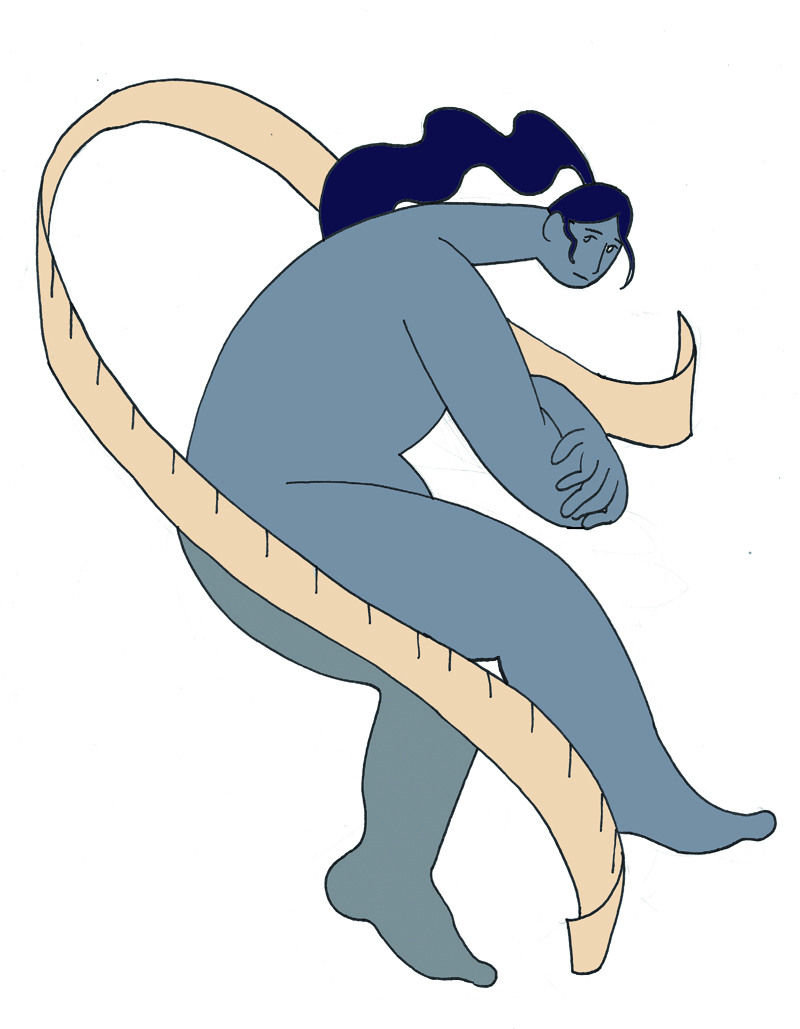We need to change the way we approach body image and healthy lifestyles
I believe the word “diet” should only refer to the way someone eats, not what they eat in order to lose weight. In fact, the definition of the term is “food and drink regularly provided or consumed,” according to Merriam Webster. Yet, diets are no longer solely considered culinary choices in our society. Instead, they are a means to shed extra pounds. And so, whenever the word “diet” is used in a sentence, people grow pale and struggle to change the subject. Why? I believe the word diet and its contemporary meaning are the root cause of body shaming and eating disorders.
Coming from Lebanon, I tend to avoid the topic of diets, as they are the basis for existence among most Lebanese women. Unfortunately, their morning coffees would never be complete without an update on how their “regime” is going. From my experience, frequent dieters don’t tend to adopt “healthy diets” for the right reasons. They do it to look good aesthetically and conform to dominant beauty standards, rather than avoid cardiovascular diseases. Almost every adult who struggles with their body image will tell you it began with a traumatic comment heard in childhood about their excess body fat. It’s sad, it’s disgusting, but it is also the cold-hearted truth.
In my opinion, our unhealthy interpretation of diets can trigger eating disorders and self-destructive behaviours. According to the United States’ National Eating Disorders Association, 35 per cent of dieters progress to pathological dieting, and 20 to 25 per cent of those individuals develop eating disorders.
Recently, a Weight Watchers ad shamelessly called out child obesity. The company is offering free six-week gym memberships for teenagers between the ages of 13 to 17 this summer. In other words, the minute you start dealing with your teenage crisis, you can get a free gym membership to release your endorphins through exercise!
There was significant backlash on social media following the release of this ad, and many people claim 13 is too young to worry about weight. But it’s important to make a distinction between a child being curvy and a child being obese. Child obesity is a big problem that shouldn’t be glorified. It needs to be addressed in teenagers, not shunned as body shaming. Some argue that encouraging teenagers to lose weight can be misconstructed as body shaming—the seed from which an eating disorder can grow.
I resent that statement. I don’t believe Weight Watchers’ aim was to encourage body shaming, nor do I believe diets are meant to be evil. The connotations of the word “diet” certainly is though. The ad and people’s reactions to it just remind me of how people approach diets—wanting to make themselves look good instead of feel good.
Throughout their lives, people are encouraged to adopt a healthy, balanced lifestyle by eating well and exercising regularly. In my opinion, as long as adults support such habits, without resorting to hurtful comments or approaches, we can avoid the issue of people developing eating disorders after being shamed into “dieting.” For instance, a mother can teach her children healthier habits rather than reproach them for their sedentary lifestyles.
As parenting expert and author Alyson Schafer told Global News: “Modelling good habits and attitudes while discussing health from an educational perspective is key.” The only thing I am against is the distorted meaning of the word “diet” or “regime,” because they were originally used to describe the way a person eats, not dictate how they should lose weight. Just as the French phrase “regime alimentaire” emphasizes what you eat, “diet” should mean the same—not be synonymous with “zero calories!”
I believe in a balanced way of life, and encouraging someone to adopt a healthy diet and lifestyle isn’t a bad thing. We must change the way we view diets. So, in this new era of political correctness, let’s correct the “diet” policy, shall we?
Graphic by Alexa Hawksworth




